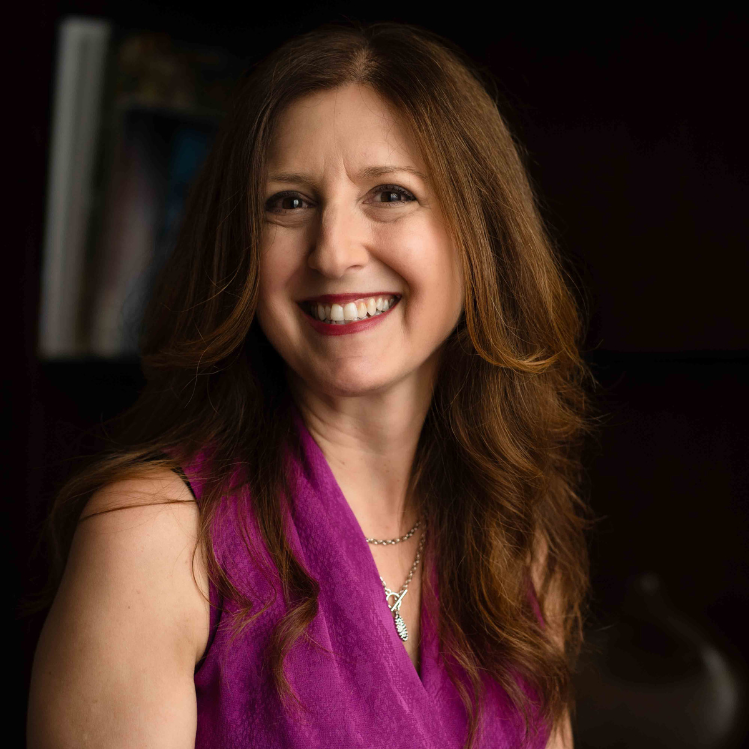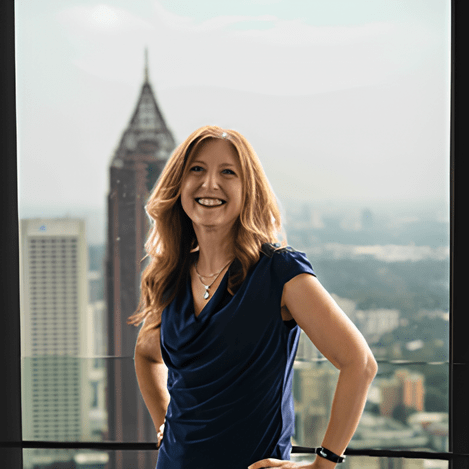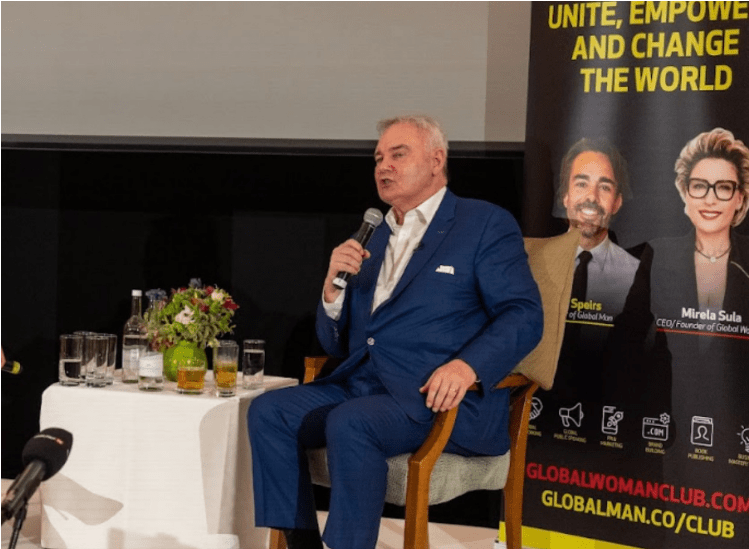
Beyond the Headlines: A Journalist’s Journey Through Humor and Reflection
In this insightful interview, we delve into the rich and varied career of Eamonn Holmes, a seasoned journalist with over four decades of experience in the dynamic world of television. From the raw and unfiltered beginnings at Ulster Television amidst the Northern Ireland conflict to the grand stages of American TV, Holmes’s journey offers a unique window into the evolution of live news reporting and the balance between journalistic integrity and entertainment. Each question and answer in this interview highlight significant aspects of his career and personal life, reflecting on how socio-political environments shape journalistic approaches, the intricacies of audience engagement across continents, and the balancing act between informing and entertaining. Additionally, Holmes shares intimate reflections on how his personal history and childhood experiences in North Belfast have influenced his professional perspective, alongside insightful observations on the changing role of humour in television. This conversation not only explores Holmes’s professional journey but also provides valuable insights into the broader changes within the media landscape.
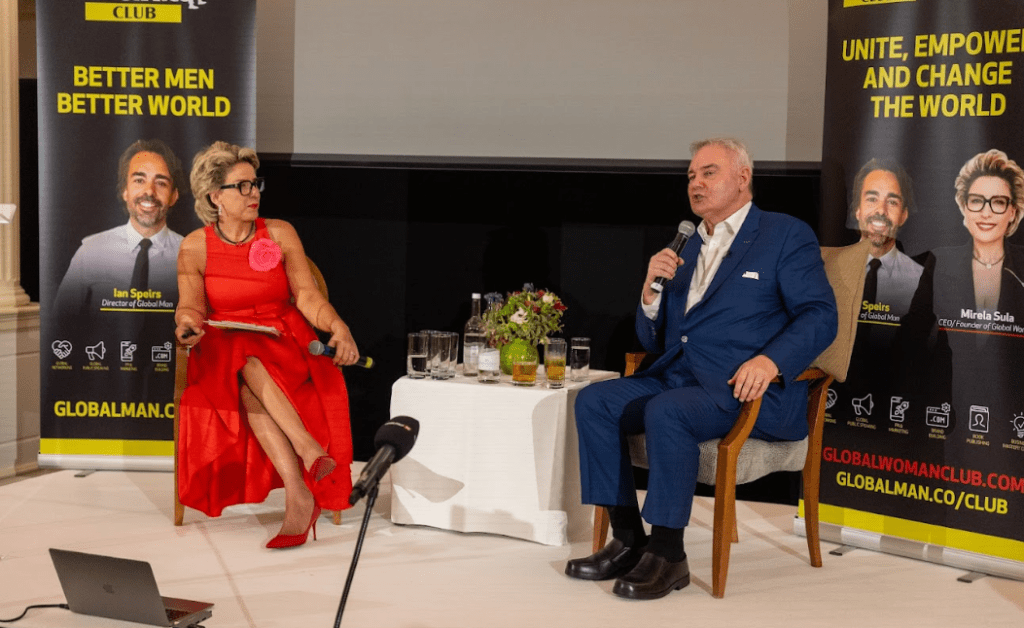
Interview: Mirela Sula
How would you characterize yourself?
I’d say I’m a maverick. I tend to get bored easily, especially when it comes to television. In my view, television should be something more than just ordinary – it should be interesting, entertaining, and even controversial. Unfortunately, a lot of TV today tends to be quite predictable and mundane. The problem, in my opinion, is that everyone is playing it safe, becoming overly cautious about not making mistakes or offending anyone.
The prevalence of political correctness has led to a decline in humor on television. People are afraid to make jokes or say something that might be deemed offensive to certain groups, be it women, ethnic minorities, or individuals of varying sexual orientations. While there’s a lot of positive content out there, this cautious approach has made TV less vibrant and more boring.
As a result, traditional television viewership is dwindling. Nowadays, not many people sit down and watch channels in the traditional sense. Instead, platforms like iPlayer and Netflix allow viewers to choose what to watch and when to watch it. Gone are the days when families would gather on Christmas Day to watch multiple shows, movies, or concerts. The traditional way of consuming TV is fading, and the future seems uncertain. What it means for the future of television is still unclear, but one thing is for sure – it’s going to be different.
Could you share some childhood memories?
I would be happy to explain how addressing the issues of the inner child leads to personal growth and better relationships with oneself and others. I would like to continue to expand on what I have already shared about the inner child in response to your previous question.
When someone can recognise that their coping skills came from a time in their life when they were young, in crisis, scared, alone, sad, or traumatized, it is usually easy to find compassion. Who would not have compassion for a five-year-old child who was left alone with a stranger and was scared, or a seven-year-old child humiliated by a teacher in front of a classroom, or a 10-year-old child who was repeatedly abused by a parent?
Any one of us would have compassion for these children. The reality is that those children were you or a version of you. Once the adult self can have compassion for the pain of their younger child, their wounded inner child, then healing can begin. Compassion opens up a window in your heart, which allows you to access your empathy and understanding for your inner child.
You can then let that child know they are loved and that they did the best they could with the resources they had at the time to survive, because that is just what they did—survive! The healing paradigm I bring my clients through is that we rescue the wounded inner child and let them know they no longer have to do all the adulting.
That they can finally rest and that there is actually a fully mature, wise, successful adult self who will now deal with all these issues. This is a huge relief for the inner child. Once that healing happens, new coping skills are given, which can be activated in the adult’s life.
As a result, your relationship with yourself will improve. You will feel more confident, more joyful, calmer, safer and much more. Because of these improvements you will then be able to be more successful and less reactive in your relationships and in all areas of your life. It is truly healing at a cellular level and what I call a Soulular level because this healing happens at a place deep inside of us which allows for tremendous change and growth.
You mentioned distancing yourself from troubles, and I’d like you to elaborate on that?
Certainly. I meant to convey that individuals often detach from conflicts not directly affecting their surroundings, leading to a lack of understanding about global issues like those in Ukraine or Gaza.
I’m passionate about this because people often overlook the intricacies of conflicts, as seen in Northern Ireland’s case within the United Kingdom. Despite being initialized, the lack of attention from London adds to the confusion.
While political awareness in Northern Ireland is notable, it can lead to fanaticism. This heightened consciousness stems from our troubled history.
Growing up amid tumult in Northern Ireland was challenging. I recall a school incident with Molotov cocktails, leading to detention. Today, mental health support would likely be available.
These experiences underscored the importance of understanding global conflicts. Despite widespread indifference, it fuels my determination to foster empathy and prevent conflicts for a more peaceful world.
Having explored various aspects, I’m intrigued by the celebrity lifestyle, which, with its undeniable perks, also presents limitations – could you share your perspective on this?
The intricacies of celebrity life include receiving calls from newspapers, like the recent one claiming a potential divorce, reflecting the challenge of constant scrutiny and mental toll. It’s a delicate balance between handling criticism and praise in the industry, and success at a young age, while an amazing experience, brings complexities and challenges in navigating the highs and lows of the entertainment world.
Can you share the starting point of your success? When did it all begin for you?

At 19, while studying journalism, I left journalism college and took charge of my success by expressing my aspirations. It’s a valuable lesson for everyone – if you don’t communicate your desires, people can’t guess what’s on your mind. I wanted to be a broadcast journalist to explain the complexities of the troubles, aiming to provide nuanced perspectives. A year later, I landed a job at the Ulster Building report, an initially unexciting publication that later led to an unexpected opportunity as a farming reporter for Ulster Television, proving that seizing opportunities and staying curious is key in the media industry.
Was it luck or hard work that propelled you to success?
I strongly believe in luck, but when the ball is at your feet in front of the goal, you must possess the skill and dedication to score. Embracing the Gary Player philosophy that the harder you work, the luckier you get, I genuinely believe in taking proactive steps rather than expecting things to happen. Reflecting on my early days at Ulster Television, I faced challenges due to being mathematically dyslexic. Despite financial concerns, I valued fair compensation for my work and declined an initially low offer. However, a fortuitous turn of events led to a more favorable arrangement, demonstrating the importance of perseverance. This experience taught me that sliding doors moments can arise from unexpected situations, and positive thinking can influence outcomes, as I’ve personally witnessed with my spinal injury.
Do you work with your partner, your wife?
Yes, we do. As for advice, I can’t offer much as it has never worked for us. While Ruth and I have collaborated on numerous successful programs, her challenge lies in separating professional and private life. Ruth, being the boss at home, naturally extends that expectation to the workplace. Despite her fantastic professionalism, navigating the dynamic proves challenging. Looking at her early BBC work on YouTube today reminded me of her brilliance, but I find that our relationship thrives when we aren’t working together. Growing up, my father and brothers and I often clashed when attempting to work together on the family farm. Familial relationships, it seems, often lead to bluntness and directness that might not occur in professional collaborations with strangers. I believe my wife and I connect best when we’re not working together. While finding a partner who shares your workload can be beneficial, it’s crucial to recognize and appreciate each other’s strengths. Personally, I’ve always valued relationships with strong women, from school teachers to bosses at work. It’s about focusing on shared qualities rather than differences, fostering a positive environment and avoiding unnecessary conflicts.
Considering our global locations, what if we organized a private jet for your visit to America?
Let me share a perspective. I’ve been fortunate to travel on private jets many times, particularly during my show “How the Other Half Lives,” which focused on billionaires rather than just millionaires. While the experience is undeniably luxurious, I must acknowledge the environmental impact. Although it’s challenging to transition back to standard airlines after the comfort of a private jet, it’s essential to recognize the complexities surrounding private air travel. Despite the allure and convenience, discussions around their environmental impact are pertinent, and it’s crucial to balance the luxury with responsible choices.
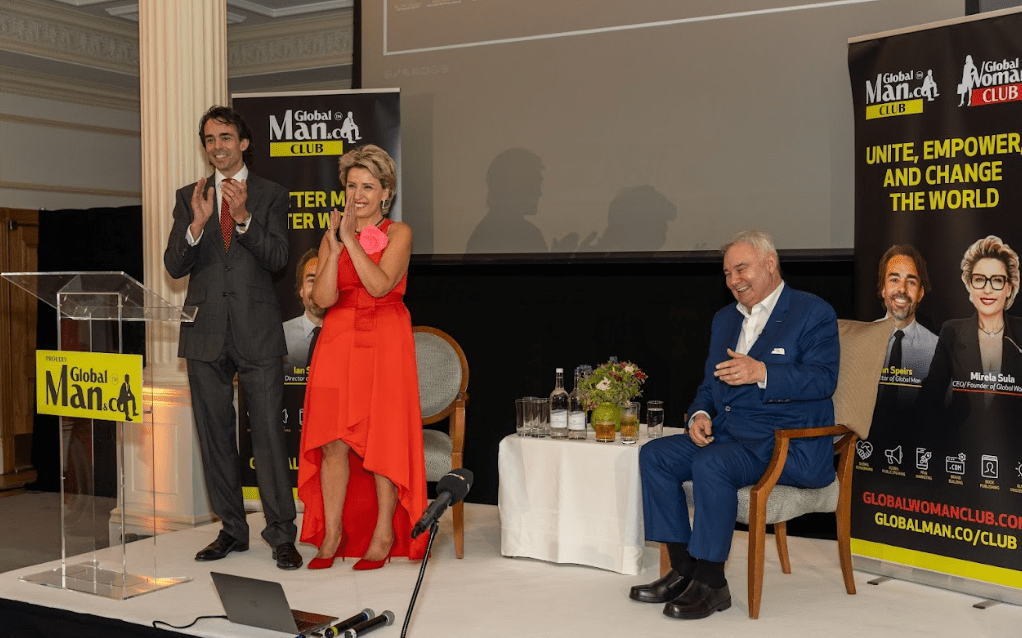
APPLY TODAY
100 Top Global Women Entrepreneurs – Global Woman Magazine
Our Journey in 12 Months:
Our Journey in 12 Months – Global Woman Magazine
5 Things That Show Money is Not Evil:
5 Things to Show That Money Is Not Evil – Global Woman Magazine
Global Man Magazine Page:
Global Woman, Global Man: Socials:
Global Woman Magazine (@global_woman.magazine) • Instagram photos and videos



